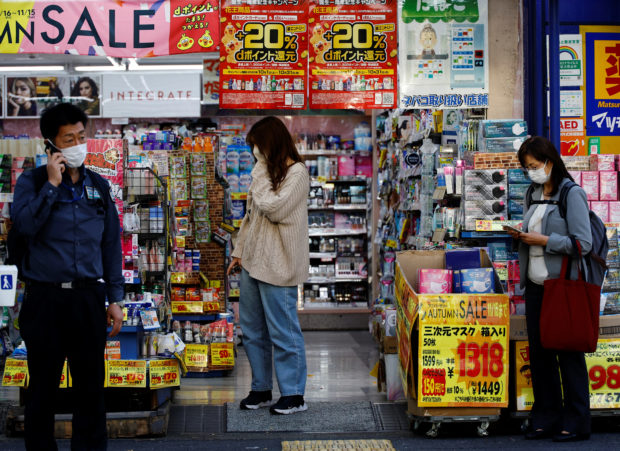
A woman chooses products at a drug store in Tokyo, Japan. REUTERS/Kim Kyung-Hoon/File photo
TOKYO – Japan’s core consumer inflation accelerated to a 40-year high in October as a weak yen pushed up the cost of imported commodities, which were already surging due to global supply constraints.
The data suggests Japanese firms may be shaking off their deflationary mindset as they gradually raise prices of everything from fuel to food while coming under pressure from cost-push inflation.
The nationwide core consumer price index (CPI), which excludes volatile fresh food prices but includes energy, rose 3.6 percent year-on-year in October, versus a 3.5-percent rise expected by economists, and accelerating from the prior month’s 3 percent gain.
The jump marked the fastest gain since February 1982.
It also confirmed CPI growth remained above the Bank of Japan’s (BOJ) 2 percent inflation goal for a seventh straight month.
Despite broadening price pressures, which are a growing concern for households, however, the BOJ would not join a global trend of tightening monetary policy through rate hikes.
BOJ Governor Haruhiko Kuroda reiterated on Thursday a pledge to maintain monetary stimulus to support a fragile economy facing still weak inflation and reeling from COVID downturn.
Kuroda has argued that global commodity costs account for half the factors for price hikes and that cost-push inflation would not last long.
Japan’s consumer inflation would likely reach 3 percent for the current fiscal year end to next March, but the pace would fall to half that rate next year as commodity and other cost-push factors run their course, Kuroda has said.
In a sign subcontractors are struggling with wholesale price pressures, the corporate goods price index (CGPI) jumped 9.1 percent in the year to October.